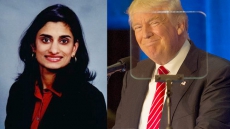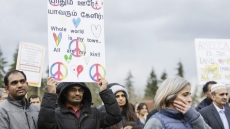A second executive order by US President Donald Trump on immigration has prompted foreign students and researchers, including those from India, to look elsewhere for educational, training and job opportunities, according to a report.
In January, Trump's initial executive order took effect barring people from seven predominantly Muslim countries -- Iran, Iraq, Libya, Somalia, Sudan, Syria and Yemen -- from entering the US for 90 days. However, a federal judge issued a stay on that executive order.
But on March 6, Trump signed a second executive order, where Iraq was excluded from the list.
However, this revised executive order was again halted, on Wednesday, by a federal judge in Hawaii citing that the order was meant to discriminate against Muslims, the washingtonpost.com reported.
Meanwhile, the Trump administration, in addition, ordered suspension of expedited processing of H-1B visas for up to six months.

As a result, students from the listed countries, as well as those from India, are seriously considering leaving the US for their education and career, to countries that have a more welcoming immigration policy, said the report published in the Chemical & Engineering News (C&EN) -- the weekly newsmagazine of the American Chemical Society.
"I'm questioning staying in America, and I have already started looking through documents for Canada. I will go to a country where I have to worry less about my life," Saghi Saghazadeh, an Iranian post-doctoral student at Harvard Medical School was quoted as saying to C&EN.
Professors have said they are worried about the executive order and its impact on US competitiveness in science and engineering, as "science and engineering graduate school programmes across the US rely heavily on an international pool of students", said Linda Wang, Senior Editor at C&EN.
According to a survey by the National Science Foundation, 45 per cent of full-time graduate students in science and engineering were on a temporary visa in 2015.




